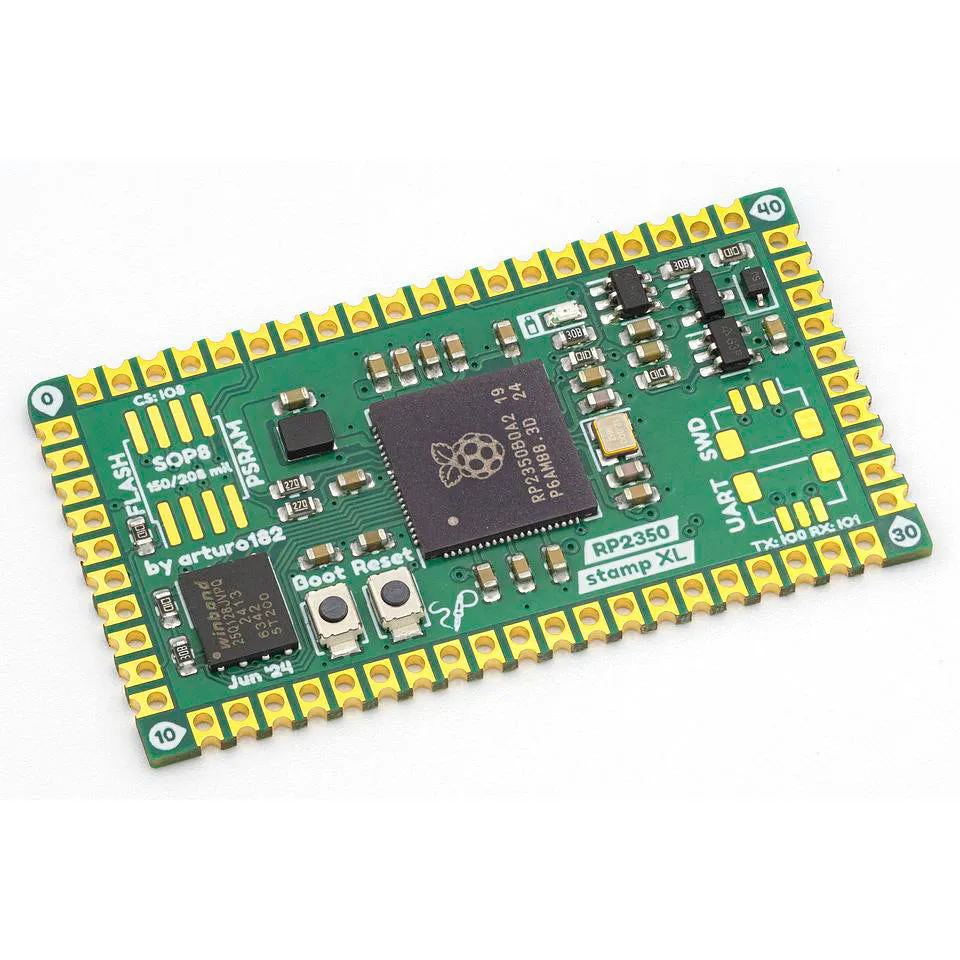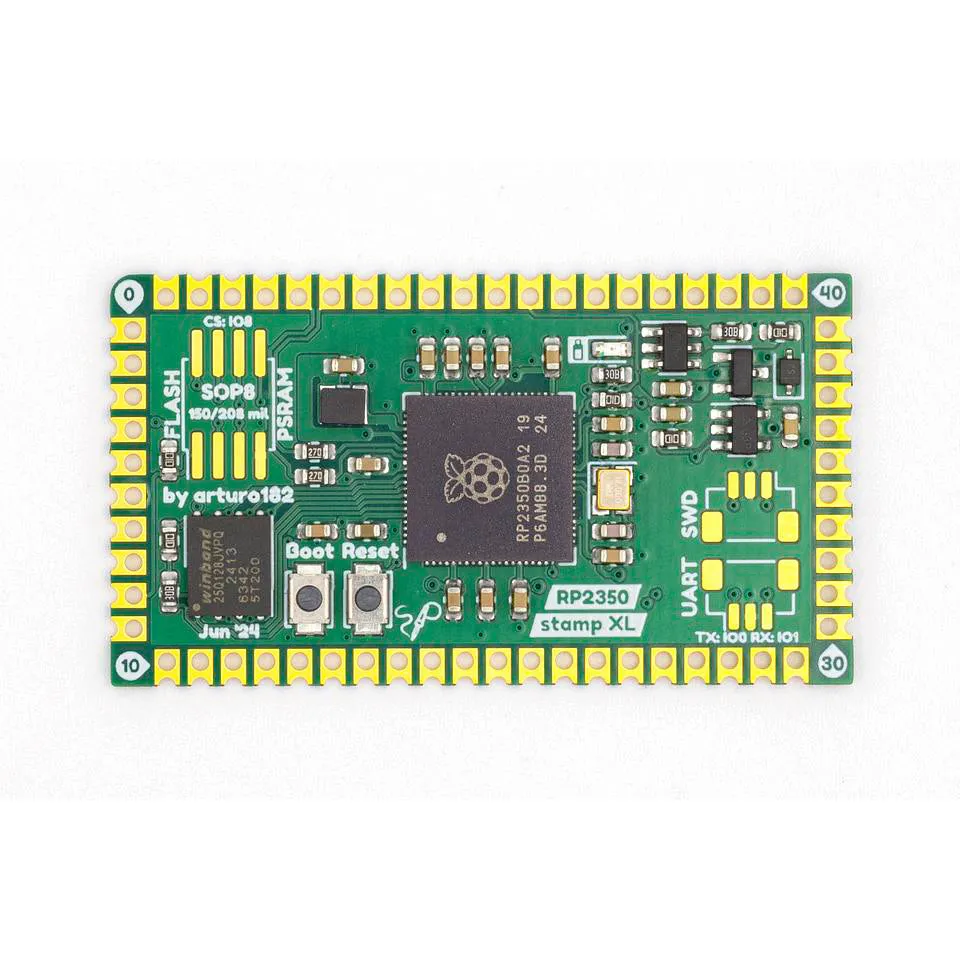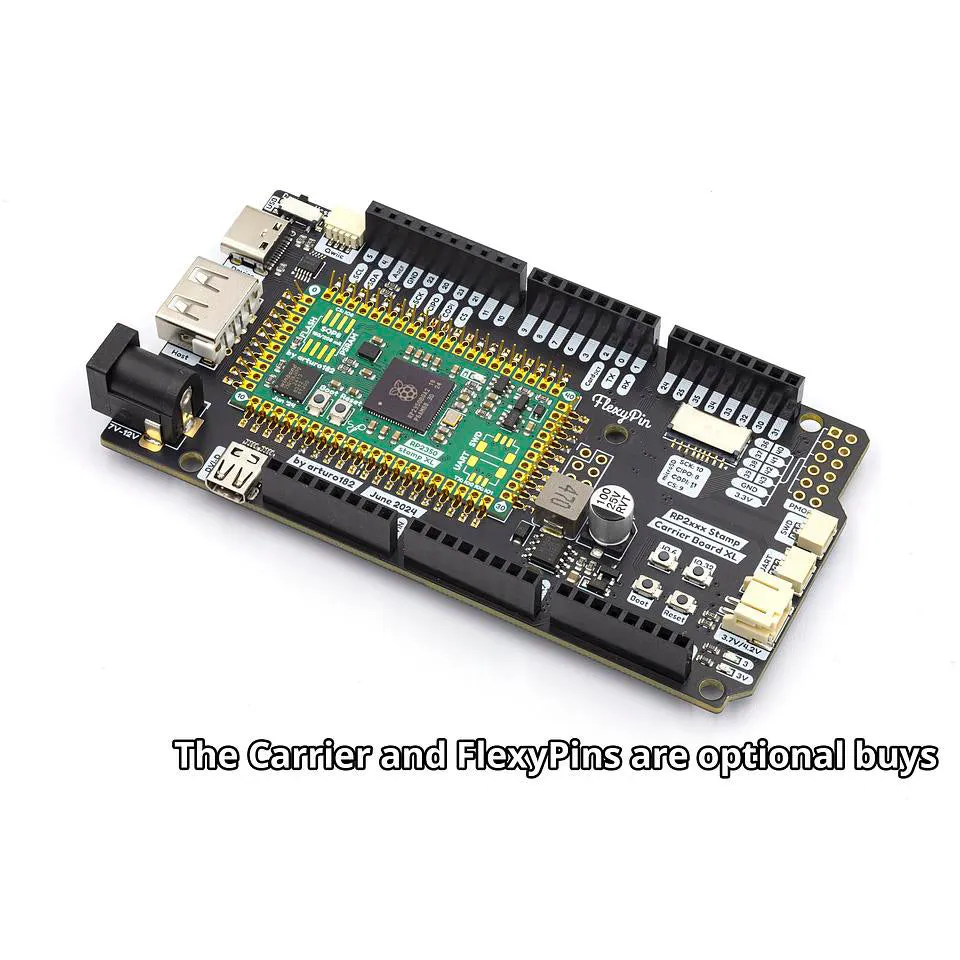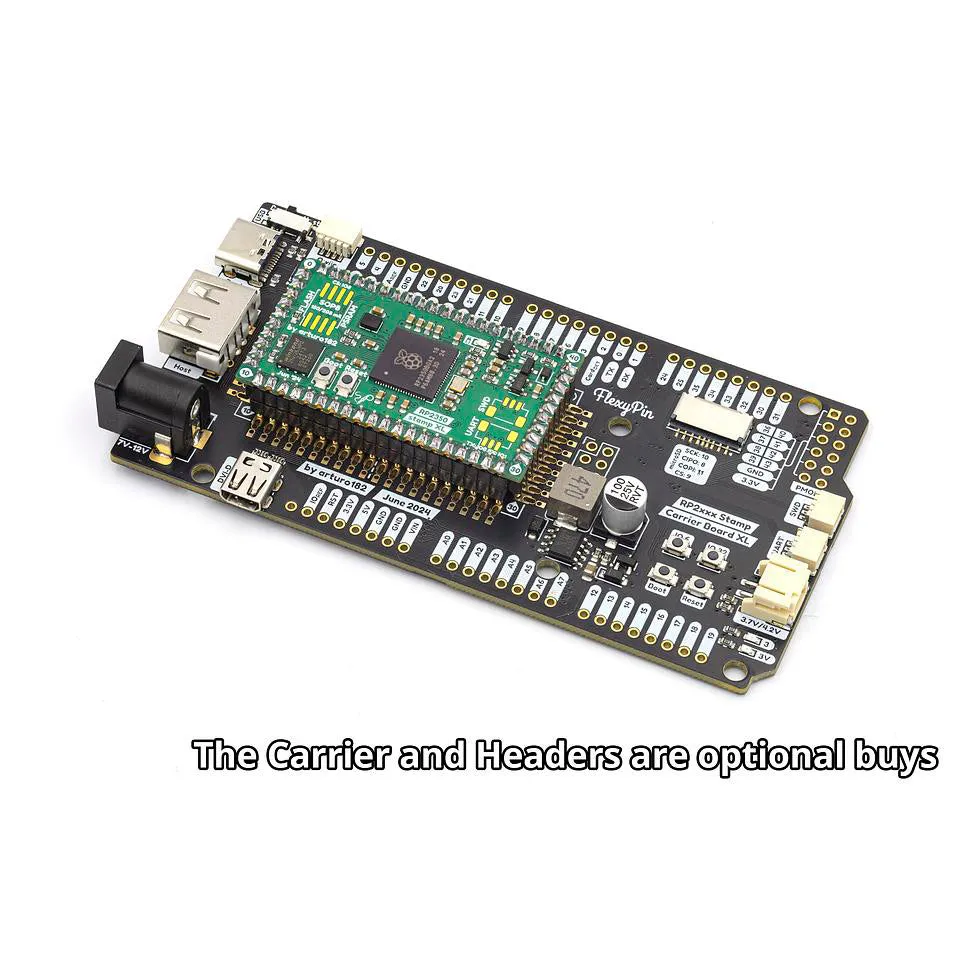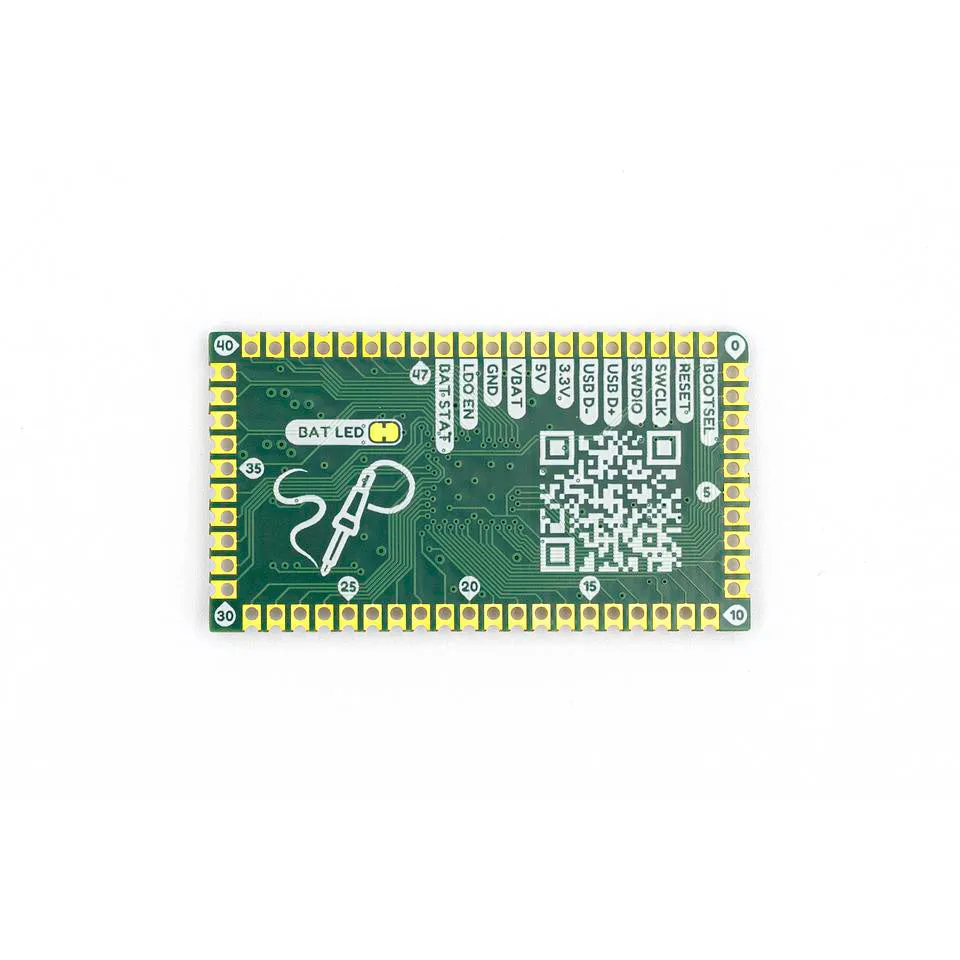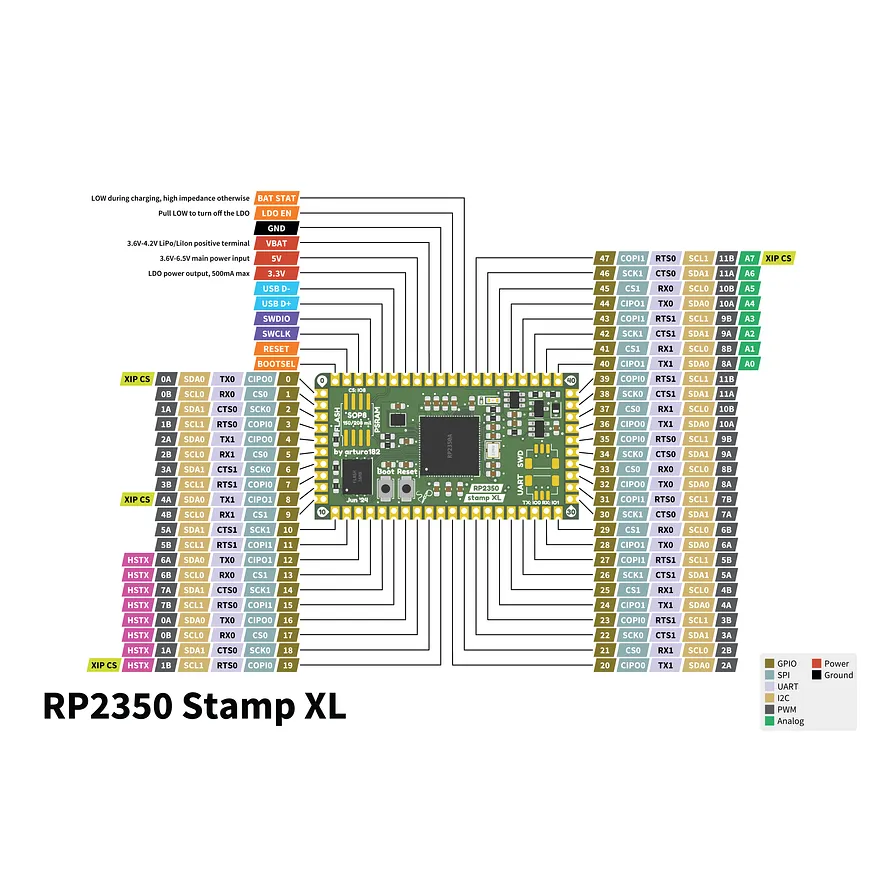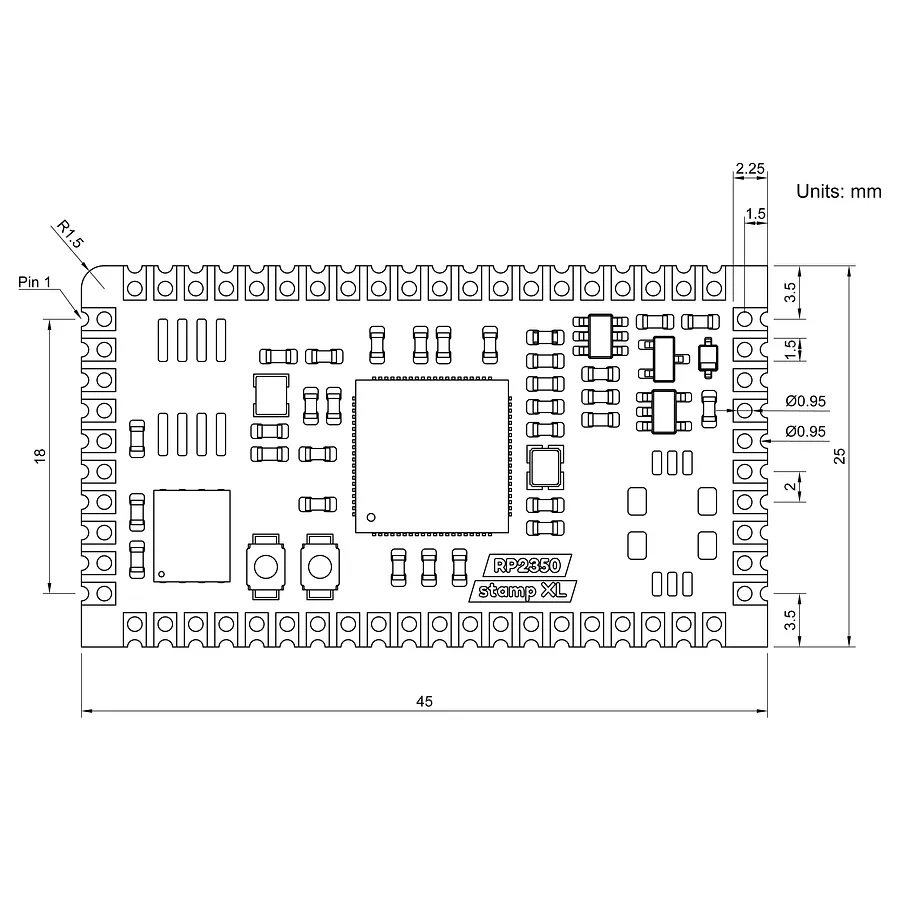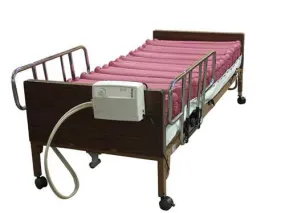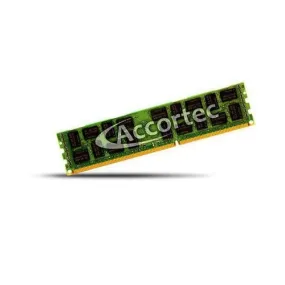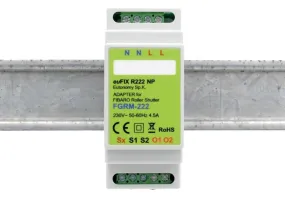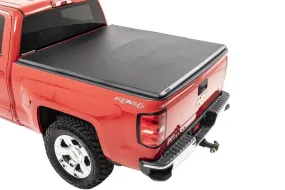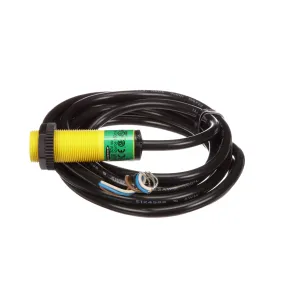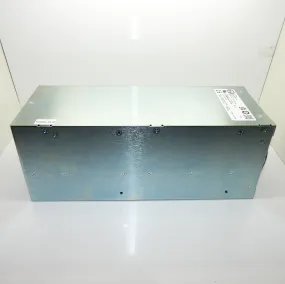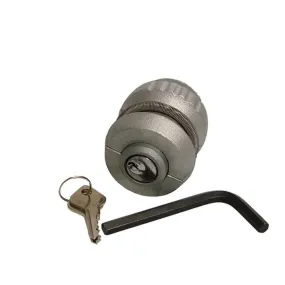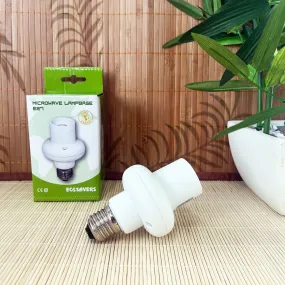A hand-solderable RP2350B module with 16MB FLASH, LiPo charging, reset/boot buttons, and all GPIO broken out.
The RP2350 Stamp XL is a hand-solderable SMD/TH module that integrates the Raspberry Pi RP2350B MCU with 16MB of FLASH, an LDO, LiPo charge management (including a charge LED), a reset button, and a bootsel button. It breaks out all the 48 GPIOs as well as USB, SWD, BOOTSEL, RST, and the voltage pins. The Stamp also has a footprint for a second QSPI FLASH/PSRAM, as well as footprints for SWD and UART JST connectors, compatible with the .
The Stamp XL was created to allow you to use the Raspberry Pi RP2350B in your designs without having to solder small-pitch QFN chips or worry about lots of external circuitry.
All you need to get you started is a 5V supply or a LiPo battery. The Stamp will take care of the charging and switching the power sources.
The castellated edges with 2mm pitch can be hand-soldered directly to a Carrier board, used with pin headers for more flexibility, or connected without soldering using , which are spring connectors designed for modules with castellated edges. You can find footprints for many PCB programs including KiCad, Eagle CAD, and EasyEDA .
Features
At only 1 by 1¾ inch, the Stamp XL packs a lot of features:
- 16MB of FLASH
- 500mA 3.3V LDO
- All 48 GPIOs broken out
- A footprint for a second QSPI FLASH/PSRAM
- Footprints for SWD and UART JST connectors, pin-compatible with the Raspberry Pi Debug Probe
- LiPo supply and charging circuit (with charging LED)
- USB broken out
- SWD broken out
- Reset Button
- Bootsel Button
- 12MHz crystal
and of course, everything that comes with the Raspberry Pi RP2350 itself:
- Dual core ARM Cortex-M33 or Hazard3 @ 150MHz
- 520kB SRAM
- 2 UARTs
- 2 SPIs
- 2 I2Cs
- 24 PWM channels
- 12 PIO state machines
- 1 HSTX peripheral
- USB with Host and Device support
The RP2350 comes with a pre-programmed ROM UF2 Bootloader, by pulling the BOOTSEL pin low and resetting, or by double-pressing the RESET button (if the FW supports it), you can upload new firmware using the USB disk drive.




